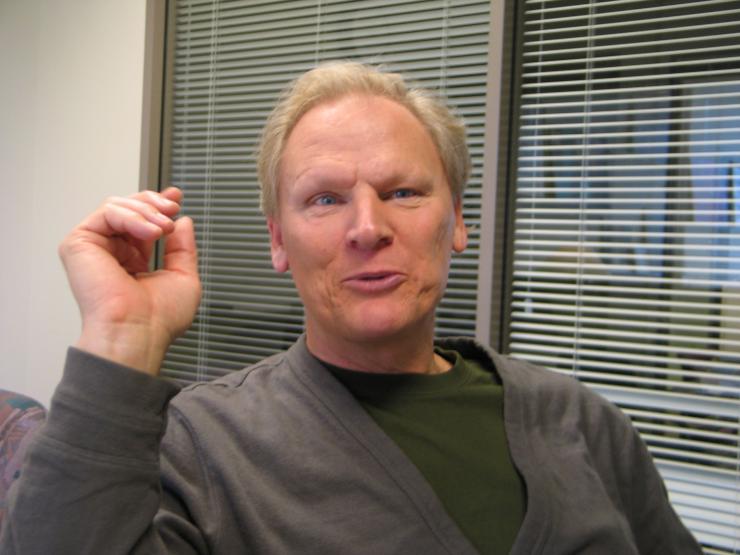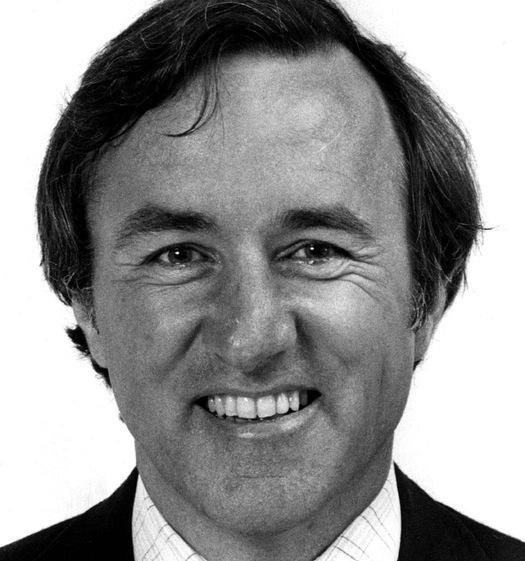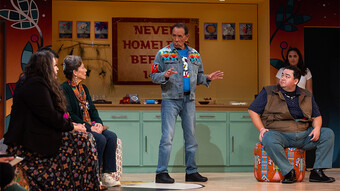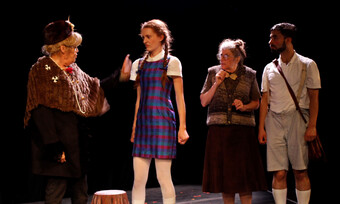Colleagues, Counselors, and Confidants
Theatre Critics of the Twin Cities

For the extent of my career I have heard my colleagues speak and react with passion about their relationships (and those of their theatres) with critics. For many, critics have been the greatest sources of consternation in their career and detriment to the health of the theatres at which they’ve worked. Attendance is allegedly dashed by the capricious writings of critics, some say. Vision and intention are misunderstood and/or misrepresented to the detriment of months of work of the theatremakers, others argue. Performances that audiences adore are wrongly maligned by critics in unfair ways is a constant lament.
I have never doubted the authenticity or veracity of those strongly held contentions.
Some critics are wonderful and some are assholes and many are in between. Similarly, the real test of a critic is not how well or how often they rave or how viciously they eviscerate, but how they write about the 90 percent of the shows that fall between those extremes.
My experience has, however, been wholly different. The Minneapolis–Saint Paul critics have been my colleagues, my advisors, my counselors, my confidants, and my friends for the entirety of my life as an artistic director. The ecology of a theatre community is, broadly, comprised of theatremakers, audiences, those that report on theatre, and those who read (or listen) to what those “reporters” report. The obligation of the writer is to the reader, not to be advocates for a theatre or theatre community (although every critic knows that the better the quality of the theatre in her/his theatre community, the better the job).
Like with any body of people, some are wonderful and some are assholes and many are in between. Similarly, the real test of a critic is not how well or how often they rave or how viciously they eviscerate, but how they write about the 90 percent of the shows that fall between those extremes. With no one under age forty-five even reading a daily paper and the neophyte blogger getting the same bandwidth as the seasoned veteran professional, the role of criticism becomes about a theatre’s acumen in using social media to spread the choice sound bites.
In September I, with others, host a retirement party for the theatre critic of eighteen years for the StarTribune (the daily paper of Minneapolis): Graydon Royce. This is the fourth critic of a daily paper whose retirement/departure party I have helped spearhead, preceded by Peter Vaughan and Mike Steele (both of the Minneapolis StarTribune and both held at The Guthrie) and Dominic Papatola of the St. Paul Pioneer Press.

Peter Vaughan, having covered education, politics, and sports for the Minneapolis Star, became a theatre critic the same month that Mixed Blood produced its first show. He was always fair and often harsh, but embraced the potential of the mission within the politics and worldview of that time and spurred us on in coverage and in person. He once saw a show in England that he thought would be a good fit for Mixed Blood, got a copy of the script and recommended it to me, and we eventually produced it for a four-month run. Rarely do I hear that theatre critics are involved in season selection.
While twenty years older, my friendship with Peter Vaughan was mutual and heartfelt. The Star had a softball team that played Mixed Blood’s softball team and the competition was fierce, but the camaraderie after the last out was genuine. We lunched monthly for a decade or more, shared a cynical adoration of Minnesota sports, and challenged each other’s aesthetics and politics. I visited him in France with my daughter after his retirement and hosted a memorial service at Mixed Blood after he died. There was no power imbalance, ass-kissing, or bad blood in the course of that long friendship.
Mike Steele, perhaps Minnesota’s definitive arts writer, covered theatre, dance, and classical music. People awoke at 5 a.m. to get the first edition of the paper on the day his review of their show would be in print. He was a member of the intelligentsia and an aficionado on almost everything. He was an out gay man when it was unfashionable to be so. He took up golf late in life. He was a novice and I was simply bad at golf. We’d meet at the tee, but with his slice and my hook, we hardly ever got to speak, but we bonded.
Twice Mike Steele was hired to direct at summer stock theatres, and twice, in acts of irony or vendetta, the StarTribune hired me to review his shows. The second time it was at a theatre at which I was about to direct, resulting in me being critic at a theatre that was my next employer reviewing the director who was to be my next critic. The show was awful and so it became an it’s-not-whether-the-bear-dances-well-but-that-the-bear-can-dance-at-all type of save-my-ass arts analysis column.

When Mike was diagnosed with terminal liver cancer, I approached the Minneapolis Park Board to present him with a lifetime pass to all the public golf courses in the city at his retirement (pre-memorial) celebration. Not appreciating the absurdity of the request (he’d never live to take another swing), the Park Board refused to make the offer, but 650 people showed up at The Guthrie to pay homage and respect to a voice that had championed the maturation of a theatre community.
Quinton Skinner, a versatile writer and critic for many local and national rags, is also a sports fan and imbued that love into his son. I had a trunk of Minnesota sports memorabilia saved over a lifetime that I gave to Gabe with a story behind every one of the hundreds of collectibles and junk. Now a teen, he still holds on to those treasures. And Quinton and I still talk Minnesota sports and arts, sometimes in the stands of a ball field.

Rohan Preston, a poet and playwright as well as a StarTribune critic, told me over lunch about a play he had been working on, but was hesitant to develop publicly in our Minnesota market. I linked him with The Lark in New York City and a development process was begun that nurtured a playwright in relative anonymity. I am constantly reminded that we are all on the same side and that a critic who is a practitioner is probably going to be better at both.
An admirer of Dominic Papatola, theatre critic turned foundation program officer, I asked him to offer big advice about how Mixed Blood could make the quantum leap from local bedrock to national treasure. Dominic had been president of the American Theatre Critics Association and a Pulitzer judge, and I value his advice and brutal candor. While we have yet to fully plumb the depths of his recommendations, I have shared a cabin with him at Liz Engelman’s Tofte Lake Center at a think tank, attended his son’s high school graduation party, and, like the others, have lunch out on a semiannual basis.
Michael Phillips came to the University of Minnesota as an undergraduate in 1979 from Milwaukee. He introduced me at age twenty-five to his favorite unheard-of playwright, Larry Shue, and then went on to be the critic for the University of Minnesota Daily, Twin Cities Reader, Dallas Times Herald, San Diego Union-Tribune, Los Angeles Times, St. Paul Pioneer Press, and Chicago Tribune. I sought him out in each of these cities for recommendations and invited him to a graduate class I taught at UCSD to humanize the dreaded concept of the evil theatre critic.
Dwight Hobbes, a fearless writer unafraid to speak his truths who writes for weeklies and monthlies, has been a commissioned playwright by Mixed Blood and produced at Mixed Blood, but also someone, when life is hard, has had a mutually-beneficial friendship that has incorporated life’s basic necessities.
When St. Paul Dispatch writer David Hawley left theatre criticism for a different beat, he became a prime reader/evaluator in a national playwriting competition we hosted at Mixed Blood. His insights were invaluable and we green lighted for development or production a few shows he had discovered as diamonds in the rough.
I like to play a long game. Over time critics rave about your worst work more often than they miss the mark on your best work. It’s a net sum gain.
Graydon Royce, the latest retiree, and I have had the most elaborate personal/professional friendship. When he was the front page editor (before becoming theatre critic), Mixed Blood developed and produced a play about Muhammad Ali co-authored by Graydon that ran for six weeks in 1989. When our daughters were in high school together and the theatre program at South High was jeopardized, we wrote a musical together that I directed, entitled SOUTH: The Musical. I have attended his daughters’ weddings, his mother’s funeral, and gone fishing with him for days at a time. We have attended collegiate and professional sports events across all types of balls. I have attended shows he’s created at his church for many, many years. I’ve even been his date at shows he’s reviewing in which my daughter was performing.
I like to play a long game. Over time critics rave about your worst work more often than they miss the mark on your best work. It’s a net sum gain. I feel blessed in having avoided the strong emotions and hypertension that plague so many about the overinflated role of the critic.
Sometimes critics are playwrights and submit their scripts for consideration. Sometimes critics audition for shows and are rejected. (Sometimes they even review the shows for which they’ve been rejected!) Again, this makes them better critics with a three dimensional sense of what it is we do.
These are but the highlights of a list that goes on and on. When I was twenty-three I invited a critic to come with me to see a show she had just trashed at another theatre, assuring her that it had just been a bad night. She joined me, saw a polished performance of the same production, and wrote a follow-up, acknowledging the many uncontrollable and intangible ingredients that make one performance unique unto itself.
Births, deaths, marriages, divorces, graduations, retirements, health, good shows, bad shows—these are our shared experiences—the ones that define people as friends and colleagues.
I’m well aware that my experience is an unshared one. I can hear the sound of New Yorkers’ eyes rolling in their heads, but I knew nothing about the field when I started at twenty-two so the notion of critic as collaborator made more sense to me than critic as foe. Still does.





Comments
The article is just the start of the conversation—we want to know what you think about this subject, too! HowlRound is a space for knowledge-sharing, and we welcome spirited, thoughtful, and on-topic dialogue. Find our full comments policy here
I am proud that the Twin Cities theater community, my theater community, awarded Graydon Royce the 2016 Lifetime Achievement honor from the Ivey Awards. I think the idea of arts writers and critics as collaborators, as Jack writes about in this piece, is an inclusive and positive attitude. However, this article did remind me of a problem we've had with having only a handful of powerful critics in the area: diversity. Mainly, there are no women in the list above. And Jack's claim that, "the neophyte blogger [gets] the same bandwidth as the seasoned veteran professional," is insane if by bandwidth he meant audience, because it take a lot of work for a writer to build an audience when there is no major newspaper distributing your work. And many of the theater bloggers that I know are women, and a majority of them do consider themselves advocates of the theater community.
As we more forward to seek our next generation of theater critics, I encourage us to demand more diversity in the voices from writers. I believe that is where the technology is leading us anyways.
-Kendra Plant
Artfully Engaging Blog & member of Twin Cities Theater Bloggers
Dear God, the personal conflicts of interest here are breathtaking.
How on earth can a critic disinterestedly consider a play featuring the daughter of the friend he brought with him as a date to the show? You either view the whole thing too sympathetically or you bend over too far backwards trying not to be.
I don't mean to attack Graydon Royce personally or suggest he himself is unethical; I've always liked what work of his I've read.
But a critic isn't supposed to have any skin in the game - any interest other than that of his/her readers, the actual and potential audience. With the various personal and professional connections Jack Reuler has described between critics and theatermakers in the Twin Cities, I can't see how that kind of impartiality could even be possible.
For many years now the only movie reviews I pay much attention to are those written by Michael Phllips (still with the Chicago Tribune). I'd almost forgotten that he used to be a theater reviewer, even though I first started reading him back then. And he was kind enough once to speak at a writers group in Chicago I occassionally attend. Good guy.